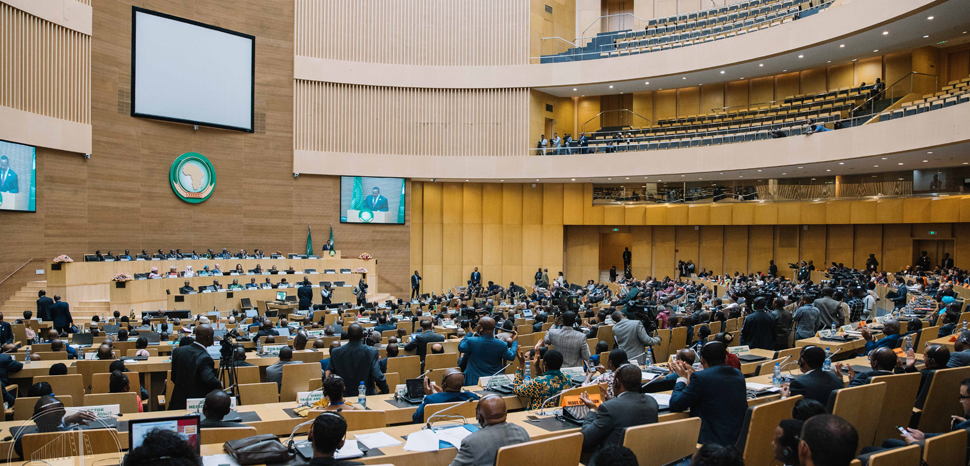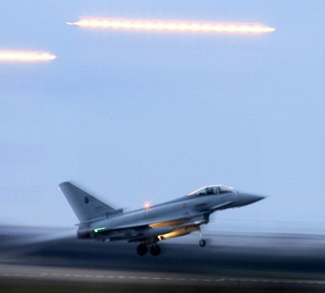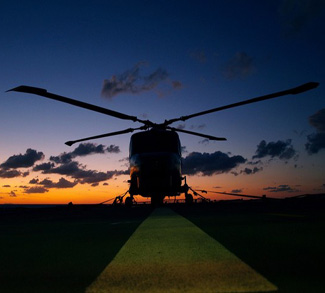From February 17-18, the African Union (AU) and European Union (EU) held their sixth summit in Brussels. With the 27 European and 54 African countries, the summit brought nearly half the world together. The event was originally scheduled for October 2020 and was delayed by the onset of Covid-19 pandemic. It was organized in the shadow of a series of military coups in West Africa, the humanitarian crisis unfolding in the Horn of Africa, and the intensifying great power rivalry in the Sahel (semi-arid, horizontal belt located below the Sahara Desert, between the Atlantic Ocean and Red Sea). The summit was seen as a significant step by the EU to re-engage with Africa and counter the growing influence of rivals like China and Russia. The expanding Russian presence, especially in the domain of security and resource-extraction, in Africa has emerged as a major concern for the EU. In this context, Josep Borrell, the EU’s High Representative, in an op-ed on the eve of the summit noted that there are “compelling reasons for wanting to make Europe Africa’s partner of choice.”
At the summit, the EU and AU unveiled a Joint Vision for 2030 which was aimed at the “renewed Partnership to build a common future, as closest partners and neighbours.” The partnership will be based on “geography, acknowledgment of history, human ties, respect for sovereignty, mutual respect and accountability, shared values, equality between partners and reciprocal commitments.” The issue of vaccine supply to Africa was high on the agenda. Africa has faced the biggest brunt of vaccine nationalism and inequality in vaccine supplies. As of February 2022, only 11 percent of the population is vaccinated in Africa. As per the WHO, the continent needs to ramp up vaccination six-fold to meet its target of 70 percent vaccinated population by the middle of this year. The summit saw the EU make a commitment to provide at least 450 million vaccine doses to Africa by mid-2022. The EU also promised to mobilize €425 million to “support the efficient distribution of doses and the training of medical teams and analysis and sequencing capacity.”
An Africa-Europe Investment Package of €150 billion was also announced. The package will cover three sectors: investment, health and education. The European investment package, known as the Global Gateway Investment Package, aims to boost public and private investment in Africa to build “diversified, inclusive, sustainable and resilient economies.” The priority will be accorded to investments in energy, transport, and digital infrastructure. The EU will focus on fair, just and equitable energy transition in Africa including to ensure access to electricity. The green transition, to enhance the ability to mitigate and adapt to climate change, is another key focus area. With the expansive investment profile of China in Africa, Europe’s focus on investments seems timely. However, the challenge lies in quickly delivering on the planned investments.
The summit focused on accelerating Africa’s economic recovery after the disruptions wrought by the Covid-19 pandemic. It called for making “ambitious voluntary contributions” such as “channelling part of the recently allocated Special Drawing Rights [of the IMF]” to the tune of US $100 billion in “liquidity support” to the countries that need it the most. So far, EU member states have already pledged $13 billion. However, they need to do more. It was decided that these SDRs will be utilized in consultation with national authorities as well as African institutions. The role of regional economic integration in Africa for fostering economic growth was underscored. Africa has launched the Continental Free Trade Area (AfCFTA) which aims to boost intra-African trade and create a single market of 1.3 billion people. The final declaration of the summit agreed to “work gradually towards the progressive and mutually beneficial integration of our respective continental markets.”
With the planned French military withdrawal from Mali and the sharpening of security challenges such as terrorism across the Sahel, security was expected to a key point of discussion. Of the 18 global military missions of the EU, 11 are located in Africa and the EU seeks to enhance its security footprint in Africa. The rising presence of Russia’s Wagner group mercenaries in Africa, in countries like Mali, has been a key EU concern. The AU and EU agreed to “foster our [security] cooperation through support for adequate training, capacity building, and equipment.” The focus will be to “strengthen and scale up autonomous peace operations of African defence and security forces, including through EU missions and assistance measures, as well as support for law-enforcement capacity-building.” From the EU’s perspective, in the context of Russia-backed disinformation campaigns and the growing footprint of China’s telecom giant Huawei in Africa, cyber security remains another key area for cooperation.
2022 will be a year of summits for Africa. Later this year, a second Russia-Africa summit will be organized. An India-Africa summit is also on the cards. In this context, the EU-AU summit sought to restructure the partnership between Europe and Africa. The focus on health, economic and security challenges was expected. However, despite the ambitious promises, it remains to be seen whether the EU can up its game in Africa in face of growing challenges.
The author is a strategic analyst based in Delhi.




